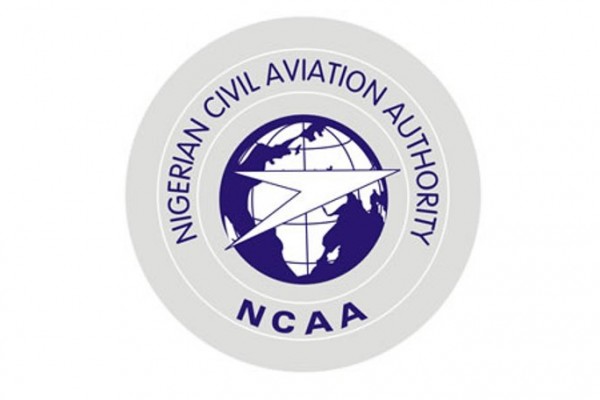759
By Tracy Moses
The Nigeria Civil Aviation Authority (NCAA) has refuted allegations by Senator Orji Uzor Kalu regarding alleged lapses in pilot training, substance use among flight crew, and weaknesses in the agency’s regulatory oversight, insisting that Nigeria’s aviation sector continues to operate in full compliance with international safety standards.
In a statement personally signed by its Director-General, Capt. Chris Najomo, on Thursday, the NCAA emphasized that no pilot is allowed to fly a Nigerian-registered aircraft without holding both a valid pilot licence and a current medical certificate as stipulated under the Nigeria Civil Aviation Regulations (Nig. CARs) Part 8.4.1.4.
“Contrary to the impression created, the Nigeria Civil Aviation Authority maintains a rigorous and internationally recognized system for certifying and monitoring the medical and professional fitness of all pilots operating in Nigeria,” Capt. Najomo stated.
While acknowledging the Senator’s right to raise safety concerns, the NCAA said it found his comments misleading and therefore deemed it necessary to provide factual clarification in the interest of the public.
According to the Authority, holders of Commercial Pilot Licences (CPL) and Airline Transport Pilot Licences (ATPL) are required, under Nig. CARs 2.3.5.1 and 2.3.7.1, to possess a valid Class 1 Medical Certificate before being allowed to operate any aircraft.
“These medical certificates are issued only after comprehensive aero-medical examinations conducted by NCAA-authorized medical examiners and subsequently reviewed by our in-house aero-medical assessors,” the statement read.
It explained that the examinations cover a wide range of physical and psychological evaluations, including cardiovascular, neurological, respiratory, and visual health, as well as screening for psychoactive substances or medical conditions that could impair flight safety.
Nig. CARs Part 2.11.2.6(b), the statement added, outlines the mental and physical fitness standards required of pilots, ensuring that no person with a condition capable of suddenly incapacitating them is certified to fly.
Medical certificates, the NCAA said, are valid for 12 months for pilots under the age of 40 and six months for those 40 and above, after which fresh examinations are mandatory for renewal.
The Authority further cited Nig. CARs Part 8.5.1.5, which prohibits any crew member from flying within eight hours after consuming alcohol, while under the influence of alcohol, or using any psychoactive substance capable of impairing judgment or alertness.
“In line with this regulation, NCAA conducts random and unannounced alcohol and drug tests on crew members. Tests may also be carried out when there is reasonable suspicion of intoxication, and results are admissible as legal evidence,” Capt. Najomo added.
He noted that NCAA safety inspectors conduct daily ramp inspections across airports nationwide, checking aircraft documentation as well as the licences and medical certificates of flight crew. Any detected irregularities, he said, attract immediate sanctions.
Najomo recalled that in August 2025, the Authority suspended the licence of a ValueJet pilot who attempted to depart without proper clearance—an action he said underscored NCAA’s zero-tolerance stance on safety breaches.
“It is therefore inaccurate to allege that Nigerian pilots operate under the influence of substances or without adequate oversight. Our procedures are comprehensive and aligned with global benchmarks set by the International Civil Aviation Organization (ICAO),” the statement said.
He noted that Nigeria’s aviation safety oversight system continues to meet ICAO audit standards under the Universal Safety Oversight Audit Programme (USOAP), ranking the country among those maintaining effective safety supervision worldwide.
Addressing the Senator’s assertion that modern aircraft can take off and land automatically, Najomo clarified that while some airplanes have advanced autopilot and autoland systems, they do not replace the role of pilots.
“Take-offs are entirely manual operations conducted by pilots. Autopilot functions are only activated once the aircraft attains a safe altitude. Similarly, autoland capabilities can only be used under specific conditions and still require pilot supervision,” he explained.
He further revealed that no Nigerian airport is currently certified for Category III (CAT III) operations, conditions required for fully automatic landings, therefore, all landings in Nigerian airspace are manually executed by flight crews.
Reaffirming the Authority’s commitment to global safety standards, Najomo said the NCAA remains proud of its safety record and continues to ensure compliance through continuous inspections, substance testing, and strict enforcement measures.
“The safety of air transport operations in Nigeria remains our highest priority and is never compromised. While we acknowledge the Distinguished Senator’s concerns, they do not reflect the true state of aviation regulation in the country,” the statement concluded.
“The NCAA remains open to constructive dialogue with the National Assembly and all stakeholders to further enhance the safety, security, and global reputation of Nigeria’s aviation industry.”



